Twelve Ending Explained: This is one of those few dramas that came equipped with everything it needed to succeed: a great cast, a bold idea, and the support of a global platform like Disney+. But in a strange twist, it found a way to take all that potential and blow it inexplicably in a blaze of glory. It absolutely came out swinging in its first two episodes, though, after that, it went off track, and to the end, it was never able to regain a hold.
What could have been a grand epic fantasy instead turned out to be a masterclass in how not to create one. Rather than being swept along in mythology and epic fighting, I found myself lost, angry, and wondering why in the world I was continuing to watch.
Directed by Kang Dae-gyu, Twelve (트웰브) was an 8-episode series, and flawed as it was, at least it had a great cast: Tiger/Tae-san was played by Ma Dong-seok, Crow/O-gwi by Park Hyung-sik, Monkey/Won-seung by Seo In-guk, Dragon/Mirr by Lee Joo-bin, and Manager/Ma-rok by Sung Dong-il. The supporting zodiac angels were Go Gyu-pil as Pig, Kang Mi-na as Dog, Ahn Ji-hye as Horse, Sung Yoo-bin as Rat, Regina Lei as Snake, and several others. Unfortunately, even with so many talented names, not a single performance could escape the weight of the poor writing and direction.

Korean Drama Twelve Recap
The Korean series Twelve starts a few centuries back when a dozen angels were sent as sentinels to protect humankind from demons pouring out of a Hellmouth, a portal between worlds. The angels, who assumed forms of virtues, co-existed in secret among humans as they protected them. Their adamant leader, Tae-san, was charged to keep humankind, among other angels, safe.
Amidst this order, Mirr, one of the strongest angels, experienced visions of destruction, foreshadowing doom for her entire group. Haunted by her foresight, she left the angels for a time, while Tae-san and Mal-rok struggled to keep the fractured family together. Their greatest adversary soon re-emerged: Sa-min, an immortal who sought to reopen the Hellmouth and unleash chaos.
Worse was O-gwi, a mortal who was in love with Mirr but imprisoned in darkness. His tragic conversion as a malignant sprite caused great hurt in the army of angels, most particularly in Mirr, who was in love with him as well as wronged by him.

The cohesiveness of angels was tested when soul stones, powerful items linked to their existences, were robbed, when Mirr was captured, and when Sa-min was empowered. The memories from times gone by resurfaced, most particularly Tae-san’s sense of remorse for killing Hae-tae, once a popular friend turned abomination. When Sa-min was scheming over how to seize absolute authority, there was no choice for the angels but to open Hellmouth anew, regaining their powers in exchange for unleashing new threats upon Earth.
Kdrama Twelve Ending Explained
Why Did Tae-san Kill Hae-tae?
The truth of how Hae-tae died is one of the darkest burdens that Tae-san carries throughout the K-drama Twelve. Hae-tae was not a run-of-the-mill angel; he was a boy who was blessed with extraordinary powers and entered the team at a very young age. Tae-san took a liking to him, practically as a member of the family, and thought he would mature to become a great guardian of humankind. When, however, Sa-min and O-gwi acquired power, they exploited Hae-tae’s naivete. Corrupted by power, nonetheless, Hae-tae was reduced to being a pawn in their machinations and turned against the very people who brought him up as their own.
This corruption had disastrous outcomes. While in control of Sa-min, Hae-tae murdered a few angels, including Han-u, Master R, Yang-mi, and Dal-gi. Each loss devastated the team and drove Tae-san further toward despair. With no alternative to facing the awful truth that he could not save Hae-tae, Tae-san was forced to make a difficult choice: to take Hae-tae’s life. This was not vengeance, but necessity; if he survived, there would only be a loss of additional angels and innocent lives. This tragic decision tormented Tae-san and influenced every choice he would make from then on, illustrating why such sadness and burden fell heavily upon his leadership.
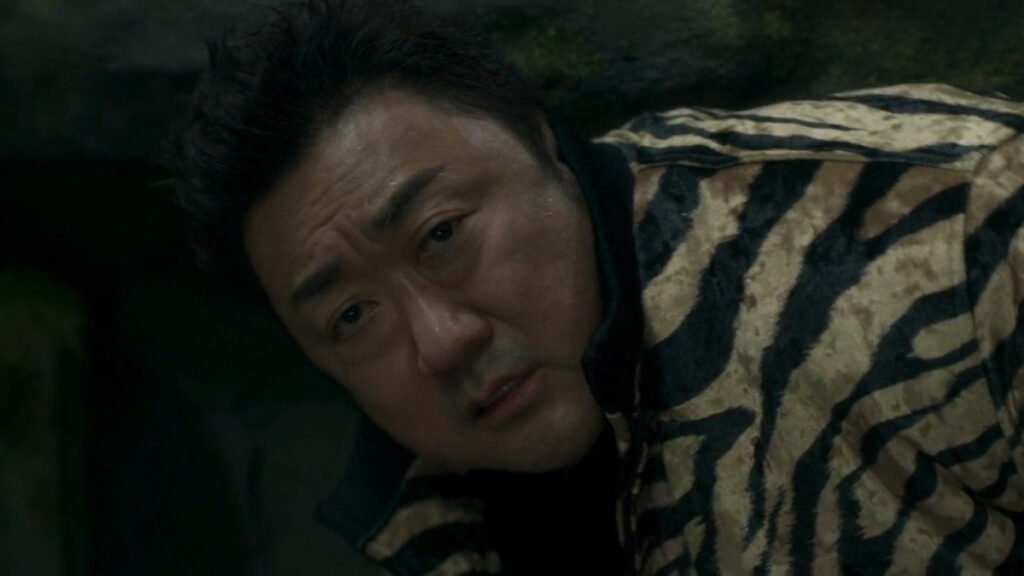
Also Read: Tempest Review: Gritty but Electrifying Beginning to the Story of Secrets, Suspicion, and Survival
How Did O-gwi Become an Evil Sprite?
O-gwi’s changes were not from wickedness, though, but from love and desperation. Being a mortal O-gwi once, he fell deeply in love with an angel named Mir. Their love was real, though not accepted by the angel order because he was a mortal creature. O-gwi yearned to lift himself higher than being a mortal and implored God to give him powers so he could walk alongside Mir as an equal. His pleadings fell on ears that are deaf, and he felt powerless as well as abandoned.
It was during this time of weakness that a chance was viewed by Sa-min. Granting him what he wanted, strength, Sa-min bestowed upon O-gwi corrupted powers. These, although making O-gwi strong, were obtained from darkness, not divine blessings. The other angels, along with Mir, rose against him, and his act severed the bond holding him and her together. Ultimately, Ma-rok banished O-gwi out of hell in order to control his corruption, though Tae-san initially wanted him dead. Having once been a supporter and a friend, O-gwi’s tragic fall revealed how love itself could become a curse when twisted by evil.
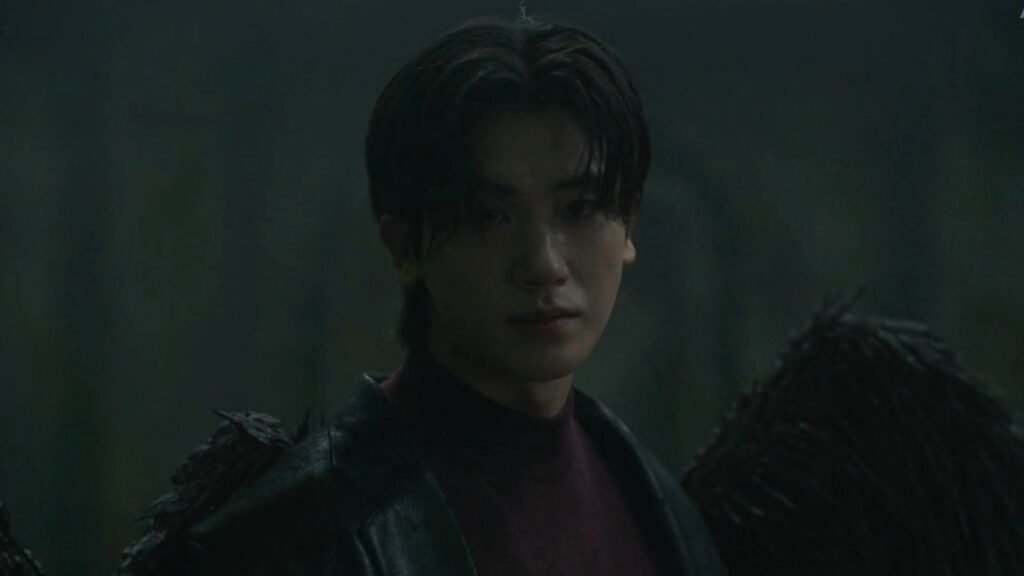
Do the Angels Succeed in Defeating Sa-min?
This final confrontation against Sa-min came against a backdrop of several years of hurt and anguish for the angels. When this final war occurred, Sa-min was very powerful, not only having manipulated O-gwi but also corrupted Hae-tae as well, in addition to resurrecting fallen angels as war tools. His authority was daunting, and even Tae-san, who was said to have survived every loss, was knocked unconscious during battles.
Just as Mir was going to be beaten down, O-gwi stepped in. Even though once a member of Sa-min’s, O-gwi chose in that moment to come to the aid of Mir and Tae-san, proving there was still a bit of humanness left in him. O-gwi fought against Sa-min to the end, though in the end, he was stabbed by Sa-min, killing him in front of those he was trying to save. The act of sacrifice gave Tae-san anger and determination to get back up.
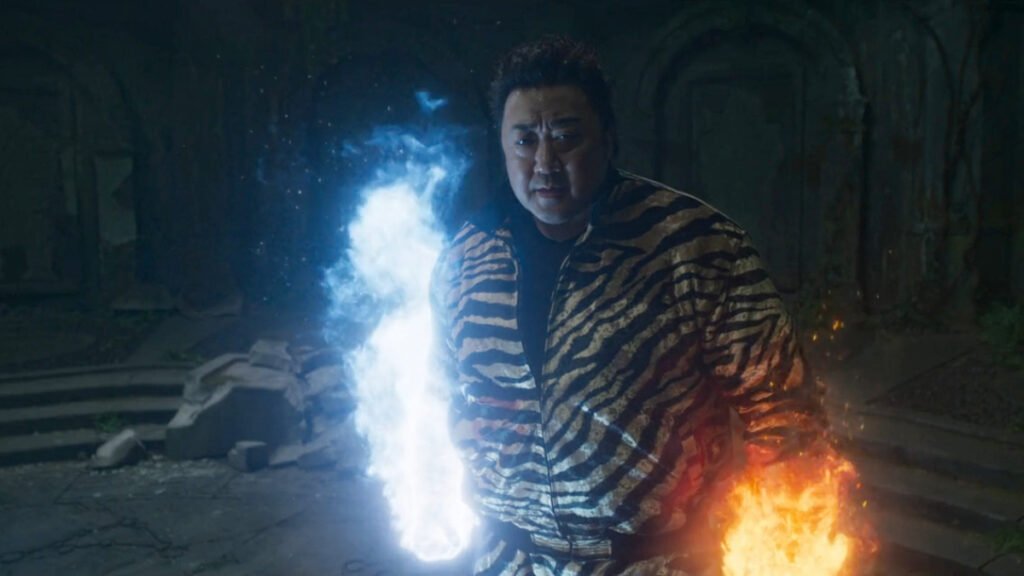
Consumed in grief as well as in anger, Tae-san fought a final time against Sa-min, beating him once and for all. With Sa-min defeated, the angels closed the Hellmouth, robbing evil of a source it had used against them for so very long. Their victory was won after a brutal fight, though it came at a cost in yet another loss of a precious life.
What Happened to O-gwi at the End of Twelve Kdrama?
O-gwi’s was one of the most tragic character arcs. He was initially driven by love, yet he was corrupted into a monster and cursed for over a century. But in Twelve episode 8, he again chose love, standing in front of Sa-min and Mir, knowing he was destined to die. His life was taken by a blade held by Sa-min, and its loss was great not only to Tae-san but to Mir, as well. For her, it was not something she could tolerate, as she had lost O-gwi once in a time far, far removed, and was destined to sit back and watch as events replayed.
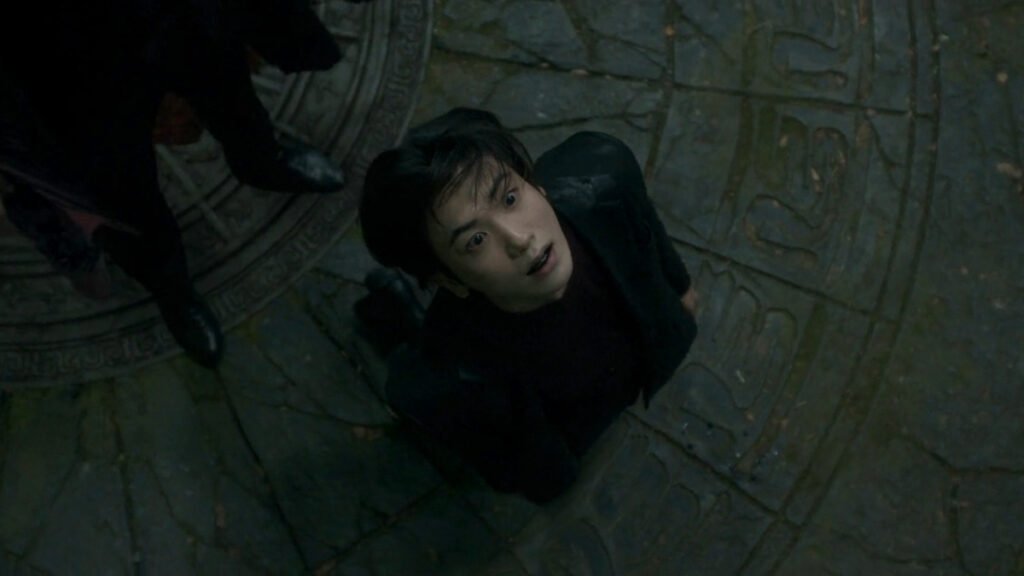
But the tale, however, provided a haunting implication that O-gwi’s travels may not have been completed. Even after peace had been ostensibly restored and after the Hellmouth was sealed, Mir went back to her unique location where she once co-existed, together with O-gwi. There, she found something she did not anticipate: his heartbeat was still going strong. What Tae-san felt in a similar vein was when their residence was in tatters. The implication was clear-cut; O-gwi’s tale had not quite been concluded, and a chance was left in him to come back, as well as a question of whether love or darkness would characterise him after doing so.
What Does the Ending of Twelve Signify?
The ending of Kdrama Twelve carries both closure and ambiguity. On the surface, the angels succeeded: Sa-min was defeated, the Hellmouth was sealed, and the dead angels were restored to life, reuniting with their comrades. For a moment, peace returned to Earth, and the angels were given another chance to live freely among humans. But underneath this victory was a reminder that the cost of survival is always sacrifice. Tae-san had lost Hae-tae, Mir had lost O-gwi, and even in victory, their hearts were heavy.
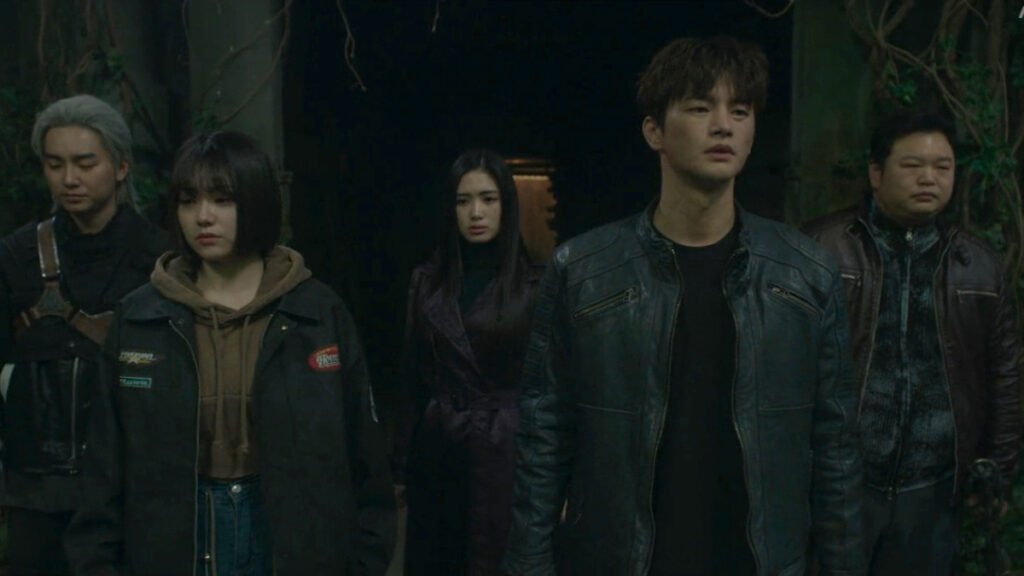
The faint heartbeat of O-gwi in the final scene is the drama’s most significant symbol. It represents the lingering presence of evil, but also the enduring power of love that refuses to fade. The ending suggests that while battles can be won, the struggle between light and darkness never truly ends. So there is a chance that we might get season 2 also, as it suggests that the story of O-gwi might still not be over. For viewers, this conclusion leaves an unsettling mix of hope and dread, a message that mirrors the show’s central theme: peace is fragile, and the price of protecting it is never small.
